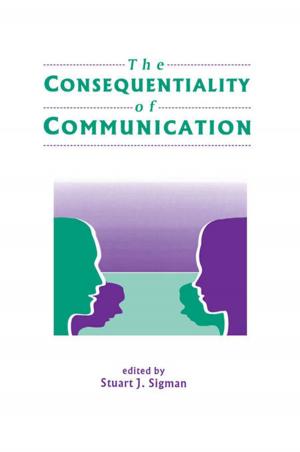Windows onto Jewish Legal Culture
Fourteen Exploratory Essays
Nonfiction, Reference & Language, Law, Jurisprudence, Religion & Spirituality, Judaism, Beliefs, Practices, & Rituals| Author: | ISBN: | 9781136479977 | |
| Publisher: | Taylor and Francis | Publication: | March 23, 2012 |
| Imprint: | Routledge | Language: | English |
| Author: | |
| ISBN: | 9781136479977 |
| Publisher: | Taylor and Francis |
| Publication: | March 23, 2012 |
| Imprint: | Routledge |
| Language: | English |
This book opens windows onto various aspects of Jewish legal culture. Rather than taking a structural approach, and attempting to circumscribe and define ‘every’ element of Jewish law, Windows onto Jewish Legal Culture takes a dynamic and holistic approach, describing diverse manifestations of Jewish legal culture, and its general mind-set, without seeking to fit them into a single structure.
Jewish legal culture spans two millennia, and evolved in geographic centers that were often very distant from one another both geographically and socio-culturally. It encompasses the Talmud and talmudic literature, the law codes, the rulings of rabbinical courts, the responsa literature, decisions taken by communal leaders, study of the law in talmudic academies, the local study hall, and the home. But Jewish legal culture reaches well beyond legal and quasi-legal institutions; it addresses, and is reflected in, every aspect of daily life, from meals and attire to interpersonal and communal relations. Windows onto Jewish Legal Culture gives the reader a taste of the tremendous weight of Jewish legal culture within Jewish life.
Among the facets of Jewish legal culture explored are two of its most salient distinguishing features, namely, toleration and even encouragement of controversy, and a preference for formalistic formulations. These features are widely misunderstood, and Jewish legal culture is often parodied as hair-splitting argument for the sake of argument. In explaining the epistemic imperatives that motivate Jewish legal culture, however, this book paints a very different picture. Situational constraints and empirical considerations are shown to provide vital input into legal determinations at every level, and the legal process is revealed to be attentive to context and sensitive to cultural concerns.
This book opens windows onto various aspects of Jewish legal culture. Rather than taking a structural approach, and attempting to circumscribe and define ‘every’ element of Jewish law, Windows onto Jewish Legal Culture takes a dynamic and holistic approach, describing diverse manifestations of Jewish legal culture, and its general mind-set, without seeking to fit them into a single structure.
Jewish legal culture spans two millennia, and evolved in geographic centers that were often very distant from one another both geographically and socio-culturally. It encompasses the Talmud and talmudic literature, the law codes, the rulings of rabbinical courts, the responsa literature, decisions taken by communal leaders, study of the law in talmudic academies, the local study hall, and the home. But Jewish legal culture reaches well beyond legal and quasi-legal institutions; it addresses, and is reflected in, every aspect of daily life, from meals and attire to interpersonal and communal relations. Windows onto Jewish Legal Culture gives the reader a taste of the tremendous weight of Jewish legal culture within Jewish life.
Among the facets of Jewish legal culture explored are two of its most salient distinguishing features, namely, toleration and even encouragement of controversy, and a preference for formalistic formulations. These features are widely misunderstood, and Jewish legal culture is often parodied as hair-splitting argument for the sake of argument. In explaining the epistemic imperatives that motivate Jewish legal culture, however, this book paints a very different picture. Situational constraints and empirical considerations are shown to provide vital input into legal determinations at every level, and the legal process is revealed to be attentive to context and sensitive to cultural concerns.















